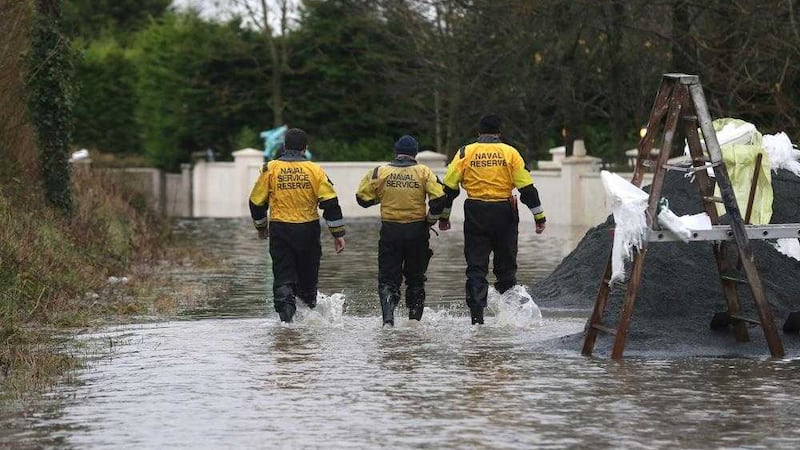European chiefs have flatly rejected claims that its conservation rules are partly to blame for record floods in Ireland.
On the back of unprecedented rainfall - as much in December as would normally fall all winter - officials in Brussels insist environmental rules do not ban dredging of rivers.
And they warned that digging mud and silt out of rivers is not always the answer to flooding.
"Any suggestion that EU environmental rules are somehow to blame for the recent severe flooding in Ireland is completely without foundation," the European Commission in Dublin said.
The staunch defence was issued as Met Eireann confirmed rainfall totals in December were double or triple what would normally be recorded in nearly all parts or the country.
Eighteen of its 23 of stations reported record amounts for the month with Cork's Roche's Point hit by 340.6 mm, Malin Head in Donegal recording 273.0 mm and Valentia Observatory, Co Kerry with 339mm.
The commission statement was made as levels on the Shannon are at a peak last seen in the devastating floods of 2009.
It said European Union law does not ban dredging or dictate how countries manage rivers and neither does the government need to tell authorities in Brussels if it plans to dredge watercourses.
"That is decided by member states themselves," the commission said.
Independent TD Michael Fitzmaurice had hit out at the EU Habitats Directive which he said enforced "daft rules" over the clearance of rivers and drains.
The commission warned that those rules do not take precedence over measures to protect lives and property.
"In particular they provide for situations of overriding public interest to permit activities that might damage a Natura 2000 site but which are necessary for human welfare," it said.
"The directives do however require an assessment of the options available before a conclusion is reached that such damage is unavoidable."
On dredging, the commission said it may help ease problems in a local area but it may also transport the flood further downstream from a rural to an urban area with the added risk of damage to more homes and businesses.
"Therefore the basin-wide approach included in EU policies is essential to find effective and long-term solutions," it said.
The commission also said 705 million euro (£517m) was being made available to the Republic from 2014-2020 for investments in schemes to mitigate against and prevent issues from climate change.
The lengthy response also set out how the EU Water Framework Directive promotes sustainable management of water to improve ecology but gives exceptions for flood protection.
It also said exemptions to rules on protecting animals and bird species are allowed if there is a public safety issue and so long as no satisfactory alternative is provided.
"EU environmental legislation does not prevent taking action to address the problems of flooding but rather provides a framework to help ensure the environment sustainability of any such measures," the Commission said.








